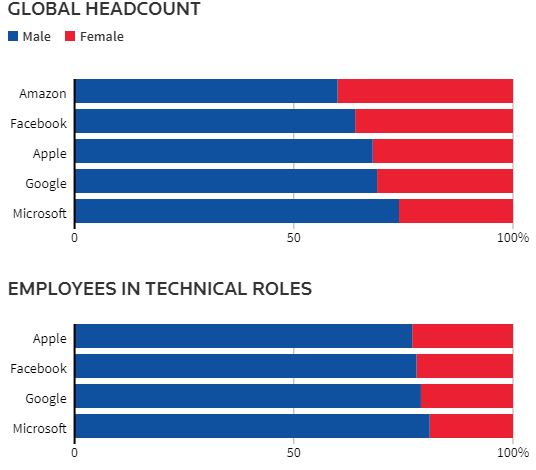
Institutionalizing Myopia
Amazon recently scrapped a machine-learning based recruiting tool. Its sin? It was discriminating against women. Why would a machine pick up this very human bias? The machine learned by looking at resumes submitted to Amazon over the previous decade. Since the tech sector skews male, especially for technical roles (see chart from Reuters at right), […]
Learn More